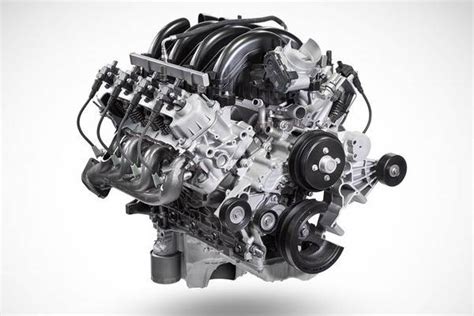The 7.3 gas engine is used in certain Ford vehicles, including pickups and vans, and is sold as a crate engine. The engine has been around since 1994, and has seen some design tweaks over the years, but the basic design remains the same. Unfortunately, it has a reputation for being unreliable and prone to failure.
One of the most common problems with the 7.3 gas engine is that it is prone to overheating. This is due to a combination of factors, including inadequate cooling systems and the engine’s high compression ratio. It is also possible for the engine to suffer from low oil pressure due to worn components. This can lead to major problems such as bent connecting rods and camshaft failure.
Another issue with the 7.3 gas engine is its fuel injection system. The engine uses a mechanical injection system which is prone to failure due to its age and lack of maintenance. This can result in hard starting, poor fuel economy and rough idle.
In addition, the 7.3 gas engine has been known to suffer from head gasket failure. This is due to the fact that the head gaskets are made from a thin steel material which can quickly leak coolant or oil. This can lead to major engine damage if not addressed quickly.
Overall, the 7.3 gas engine is a reliable engine, but it does have its share of problems. It is important to keep up with regular maintenance and check for signs of wear and tear on the engine. If you notice any problems, it is best to have the engine inspected and repaired as soon as possible before more serious damage can occur.
Identifying Symptoms Of Common 7.3 Gas Engine Problems
The 7.3 gas engine is one of the most reliable and durable engines ever made. It has been used in Ford vehicles since 1994 and has been one of the most popular engines in the market. However, like any engine, it can and does experience problems. Identifying the symptoms of common 7.3 gas engine problems is the first step in getting them fixed.
One of the most common problems with the 7.3 gas engine is poor fuel delivery. This can be caused by clogged fuel injectors or a faulty fuel pressure regulator. If you notice that your engine is running rough, has poor acceleration or is misfiring, these can all be signs of a fuel delivery problem.
Another issue is oil leaks. These can be caused by worn or damaged seals, gaskets or other components. Oil leaks can be identified by checking for wet spots around the engine or an increase in the temperature of the engine oil. If you notice either of these things, it’s time to take your vehicle in for a checkup.
The 7.3 gas engine is also prone to overheating. This can be caused by a lack of cooling system maintenance, a faulty thermostat or a leak in the cooling system. To identify an overheating problem, check the temperature gauge in the dashboard. If it is consistently higher than normal, it’s time to take your car to a mechanic.
Finally, the 7.3 gas engine can also experience problems with the spark plugs. This can be caused by a buildup of deposits or a faulty ignition system. If you notice that your engine is misfiring, stalling or running rough, it could be a sign of a spark plug problem. If this is the case, it’s best to take your vehicle in for a checkup as soon as possible.
Identifying the symptoms of common 7.3 gas engine problems is the first step in getting them fixed. If you’re experiencing any of the problems mentioned above, it’s important to take your vehicle in for a checkup as soon as possible.
Exploring Options To Fix 7.3 Gas Engine Issues
The 7.3 gas engine is one of the most popular diesel engines used in the automotive industry. It is known for its reliability and long lasting performance. However, like any other engine, it can experience issues that will need to be addressed. Some of the most common problems associated with the 7.3 gas engine are listed below.
The first issue is that the engine tends to experience a loss of power. This can be caused by a variety of issues such as a clogged fuel filter, a worn out fuel injector, or a vacuum leak. If the engine is not running properly, it will not be able to provide the necessary power to the vehicle.
The second issue is that the engine can experience increased emissions. This is typically caused by a worn out EGR valve, a faulty oxygen sensor, or a malfunctioning catalytic converter. All of these components need to be replaced or repaired in order to reduce emission levels and improve engine performance.
The third issue is that the engine can experience higher fuel consumption. This can be caused by a number of issues such as a clogged air filter, a worn out spark plug, a faulty fuel pressure regulator, or a defective fuel injector. All of these components need to be replaced or repaired in order to reduce fuel consumption and improve engine performance.
The fourth issue is that the engine can experience a decrease in oil pressure. This is typically caused by a worn out oil pump, a clogged oil filter, or a faulty oil pressure sensor. All of these components need to be replaced or repaired in order to increase oil pressure and improve engine performance.
Fortunately, there are a number of options available to fix the issues associated with the 7.3 gas engine. Some of the most common solutions include replacing or repairing the components mentioned above, as well as installing aftermarket performance parts such as cold air intakes, upgraded exhaust systems, and high-performance ECU chips.
The cost of these solutions varies depending on the type of repair or upgrade being performed. In general, the cost of repairs or replacements will be lower than the cost of aftermarket performance parts. However, it is important to remember that the quality of parts used will also play a role in the long-term reliability of the vehicle.
Overall, the 7.3 gas engine is a reliable and durable engine that can provide many years of reliable service. However, like any other engine, it can experience issues that need to be addressed. Fortunately, there are a number of options available to fix the issues associated with the 7.3 gas engine, ranging from simple repairs to more complex upgrades.
The main issue with the 7.3 gas engine is that it has a higher than average failure rate due to the design of its parts.
The 7.3 engine is a V8 engine.
Common failure points of the 7.3 engine include the pistons, head gaskets, valve seals, and oil pump.
No, the 7.3 engine is no longer in production.
The best way to extend the life of a 7.3 engine is to regularly check and maintain the engine, including changing the oil and spark plugs.
The 7.3 engine features a higher horsepower output and larger bore size than other V8 engines.
The 7.3 engine was used in Ford F-250 and F-350 Super Duty pickup trucks from 1999-2003.
Common trouble codes for the 7.3 engine include P0171, P0316, P1211, P1316, and P0401.
The most common symptoms of a failing 7.3 engine are increased fuel consumption, rough idling, and white smoke from the exhaust.
The average cost of replacing the 7.3 engine is between $2,500 and $3,500.






